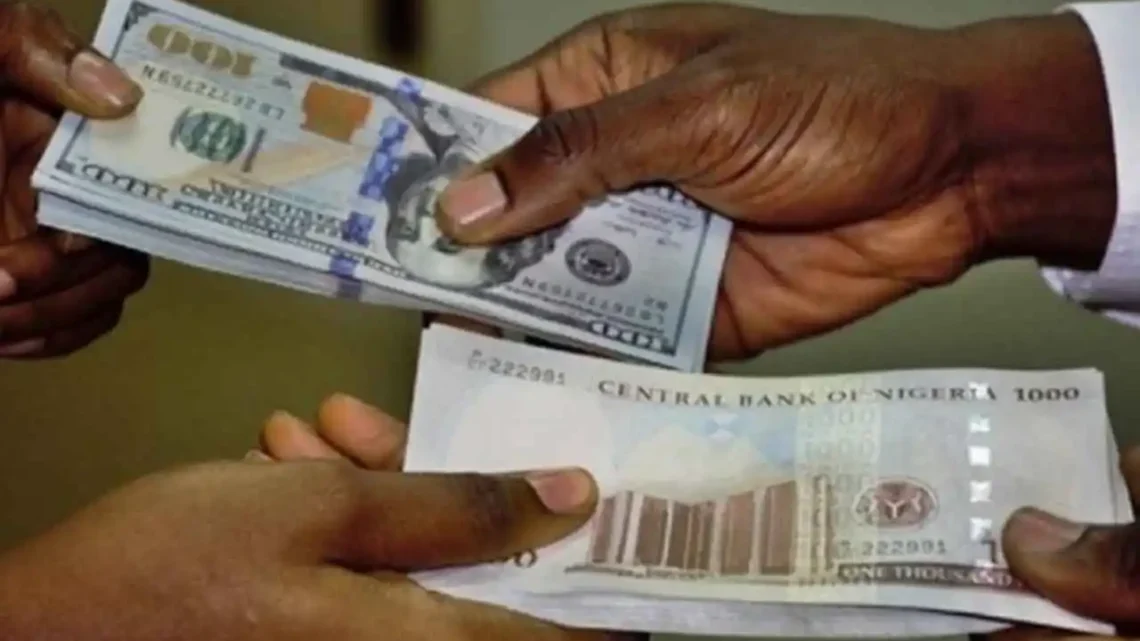
Aboki Naira to Dollar Black Market Exchange Rate Today, 4th October 2025
The Nigerian Naira experienced a marginal depreciation against the US Dollar in the parallel market on Saturday, with black market operators quoting the exchange rate at ₦1,470 for selling and ₦1,450 for buying per dollar.
This comes amid ongoing volatility in Nigeria’s foreign exchange landscape, influenced by fluctuating oil prices, inflation concerns, and policy shifts from the Central Bank of Nigeria (CBN).
Trending Now!!:
The rates, commonly tracked via informal channels like Aboki FX platforms, reflect activity in major cities including Lagos, Abuja, Port Harcourt, and Kano. Bureau De Change (BDC) operators reported steady but cautious trading volumes, as importers and travellers sought dollars for essential transactions.
“Demand remains high, but sellers are holding firm on prices due to uncertainty around global crude benchmarks,” said one anonymous trader in Lagos’ bustling Alaba International Market. For context, the black market rate has hovered between ₦1,450 and ₦1,500 over the past week. On October 2, the selling rate stood at ₦1,460, showing a slight uptick in the Naira’s value mid-week before today’s minor reversal.
By Friday, October 3, it had edged up to ₦1,470/₦1,450, a trend that persisted into the weekend.
This contrasts with the official CBN rate, which remains more stable at around ₦1,500 per dollar in the Investors and Exporters (I&E) window, though the parallel market often serves as a barometer for real-world affordability.
Economists attribute the subtle shifts to a mix of domestic and international factors. Nigeria’s external reserves recently climbed to $42 billion, bolstering hopes for Naira stabilization, but persistent inflation—now at 34.2% year-on-year—and reduced foreign inflows have tempered optimism.
The CBN’s recent interest rate cut to 26.25% aimed to spur growth but has sparked debates on its impact on currency valuation. “While the policy supports borrowing, it could pressure the Naira if not paired with robust forex interventions,” noted Dr. Aisha Bello, a currency analyst at Lagos-based Zenith Economics.
On the brighter side, the resilience of the parallel market underscores the adaptability of Nigeria’s informal economy. Parallel rates have stabilized below ₦1,500 for over a week, a welcome reprieve from earlier peaks above ₦1,600 earlier this year.
For businesses reliant on imports, today’s rates mean an additional ₦20-30 per dollar compared to mid-week, potentially hiking costs for electronics, pharmaceuticals, and raw materials.
As the weekend unfolds, market watchers advise caution for transactions. “Verify rates with multiple sources like Aboki FX apps or trusted BDCs to avoid scams,” recommends the Association of Bureau De Change Operators of Nigeria (ABCON).
With global markets closed until Monday, any major announcements from the Federal Ministry of Finance could sway Monday’s opening quotes.
Stay tuned for updates as the Naira navigates these turbulent waters—investors hope for a rebound driven by anticipated oil revenue inflows in the coming weeks.
Rates are indicative and subject to real-time fluctuations. For official transactions, consult authorized dealers.


